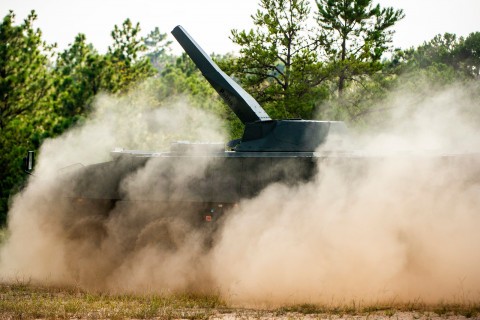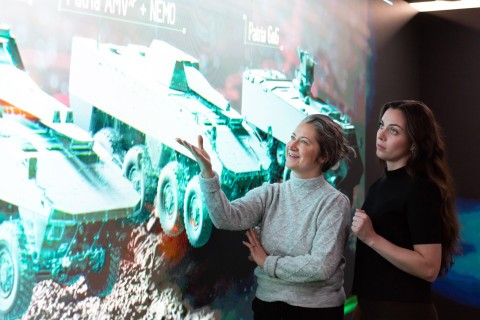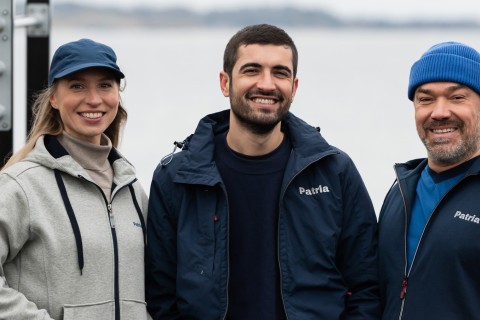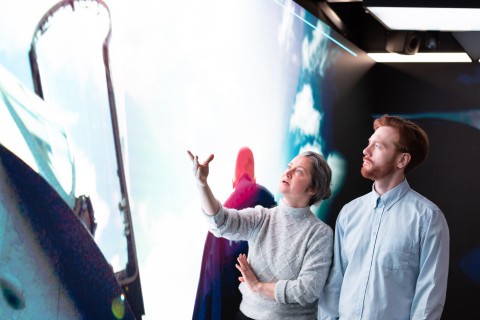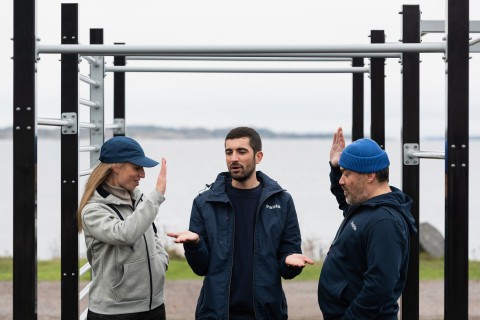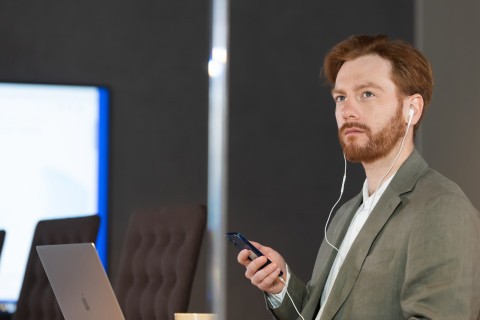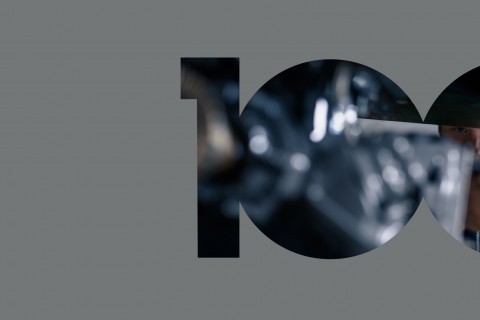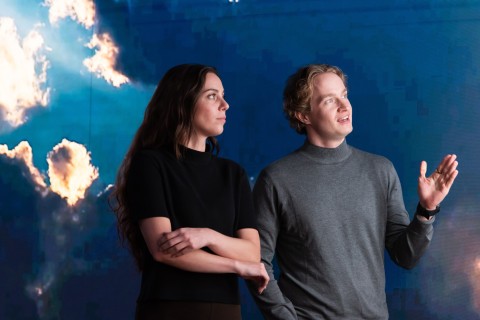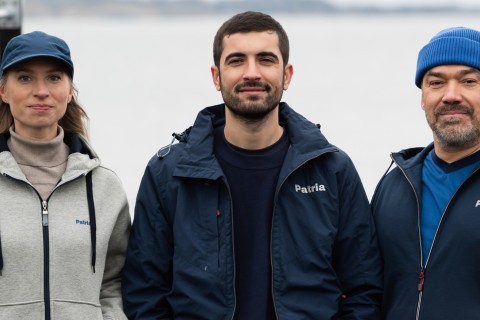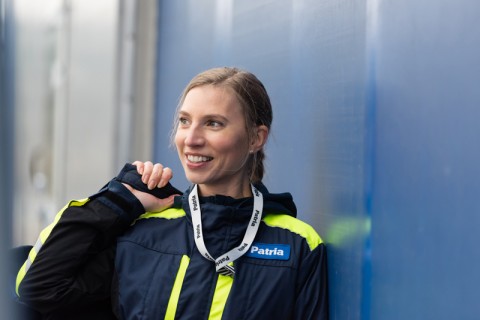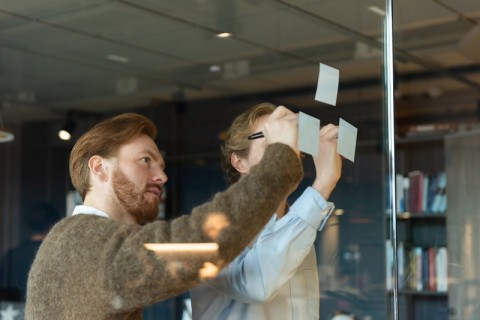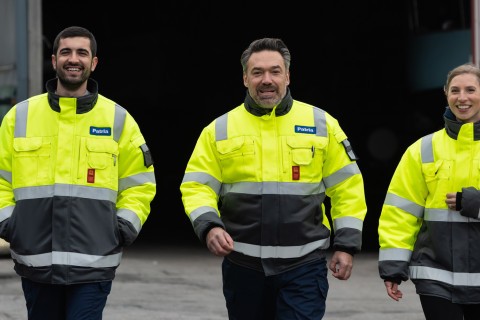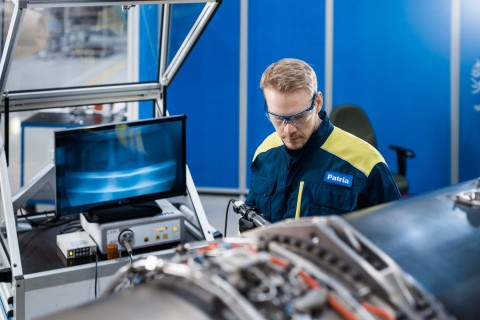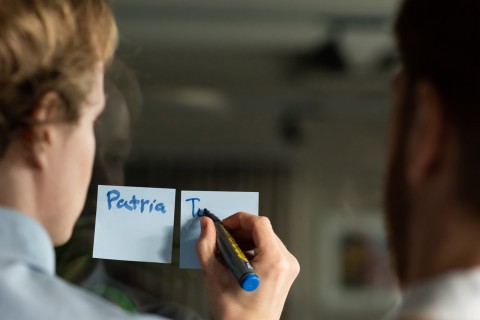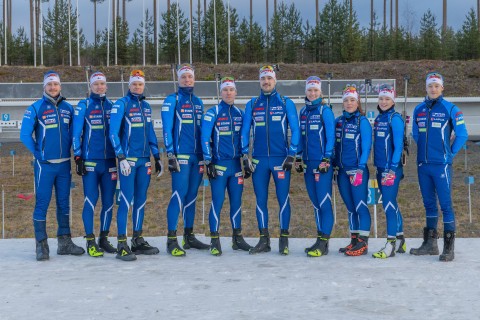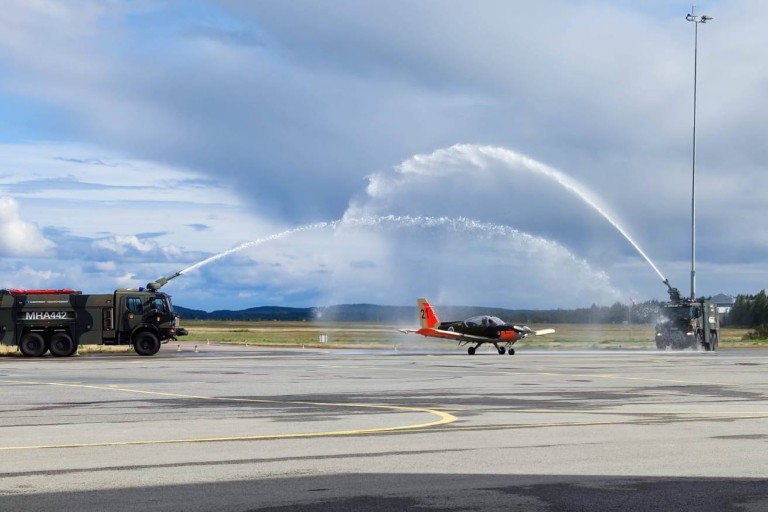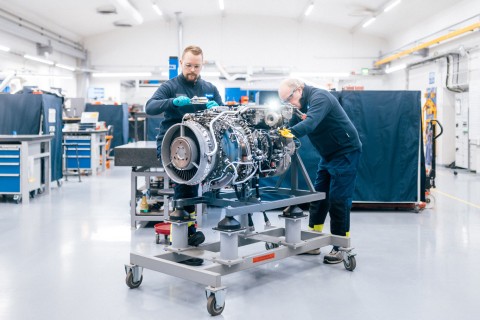
16.4.2021
Patria has been able to carry out pilot training in Córdoba, Spain as planned during the pandemic. Special arrangements have been made to ensure the safety of students and instructors.
Text: Matti Remes Photo: Patria
In the picture students in Córdoba, Spain: from the left Kiira Kallio, Niilo Heikkinen, Eero Hyvärinen, Sini Vehviläinen, Lassi Punavaara and Joel Kupari.
Patria had to halt its pilot training in Spain in March last year when the coronavirus situation in the country took a rapid turn for the worse. Michael Hirvonen, head of the Córdoba training centre, says that the interrupted pilot training course continued in Tampere-Pirkkala, after Patria staff had relocated there from Spain.
“After that, we kept our eye on the situation. In the summer, we already began preparing to restart operations in Spain,” says Hirvonen.
Due to the second wave of the pandemic, the startup of pilot training in Córdoba had to be postponed slightly – but in November, 18 students could continue their basic commercial pilot training in Spain. They had started the course in the summer in Finland with theory lessons and their first flights.
Students divided into corona bubbles
Before relaunching pilot training, Patria staff thoroughly familiarised themselves with the regulations and guidelines of the Spanish authorities. They were assisted by a Spanish occupational healthcare consultant.
“The biggest step was to divide students into ‘bubbles’ of four to six people who were not physically in contact with the other bubbles,” says Hirvonen.
The interiors of the training planes and vehicles used by students were disinfected regularly. Training materials were also cleaned and classrooms aired out every 50 minutes in line with the local official regulations.
“The main idea was to minimise the risk of infection. In the mornings, we measured the temperature of students and staff. During the course, one student had symptoms suggestive of coronavirus, but their test result came back negative.”
Course programme completed as planned
Sini Vehviläinen and Eero Hyvärinen who are completing basic commercial pilot training are satisfied with the arrangements – which enabled them to complete the course programme in Spain even during the pandemic.
“The training went exactly as planned, but we had to be very careful to protect our coronavirus bubble. Mask use was mandatory. Cockpits were disinfected before a new pilot took the controls,” says Hyvärinen.
Students completing basic commercial pilot training in Córdoba fly about one hundred hours on Patria's single-engine DA40 planes.
“After orientation, we got to take to the skies quickly in Córdoba. At first, we flew under the guidance of the instructor, but after the cross-country flight test, I did solo flights to nearby airfields,” says Vehviläinen.
Vehviläinen, Hyvärinen and the four other students in the same bubble lived in a house separate from the other students. They travelled to the airport and back in a Patria car.
A new course begins in Córdoba in May
The students returned to Finland at the beginning of March and are continuing their studies at Tampere-Pirkkala in the spring. In Finland, they are taking theory lessons and tests. The course includes around 150 or so additional hours of real and simulated flight.
“After a bit of additional training, the graduates will be ready to start working as co-pilots,” says Michael Hirvonen.
Meanwhile, Córdoba is preparing to start a new pilot training course at the beginning of May.
“We will have similar arrangements in place during the next course and are keeping a close eye on how the pandemic develops. The Spanish government aims to end the state of emergency and lift movement restrictions on 9 May.”
What did you like about the article?
Thank you for your opinion! You can share the article on social media using the buttons below:
